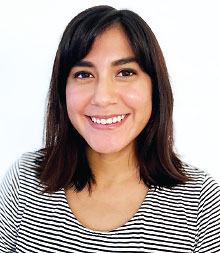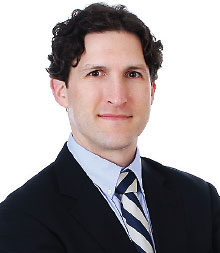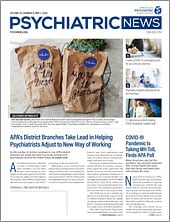“Nobody predicted this,” said Parma Zahid, M.D., a second-year psychiatry resident at Montefiore Medical Center in the Bronx, N.Y., now deployed to medical floors caring for patients with COVID-19.
“A few of my other psychiatry colleagues and I were supposed to be in Madrid giving presentations at the European Psychiatric Association. Instead of Madrid, I’m on a medical floor. People are really sick, some of them are dying, and families are really worried.
“But I’m glad I can help in this unprecedented crisis. All of us going through medical school fell in love with a specialty. But at the core, we are doctors, and right now we all are going back to that original foundation.”
Zahid’s experience—of a personal world turned upside down and an educational plan thrown off track while being catapulted professionally into a setting for which one is only minimally prepared—mirrors that of many psychiatry residents in New York City, the nation’s epicenter of the COVID-19 global pandemic. The willingness, without hesitation, to walk onto medical floors and treat patients with a highly infectious virus (going home later to spouses and children) is common in a city where locals are cheering and banging on pots and pans at night to applaud America’s newly discovered health care heroes.
For residency training directors and their institutions everywhere, COVID-19 has scattered the cards. Even in parts of the country not severely affected by COVID in ways that have impacted the educational mission, the pandemic raises questions about the future.
“The period from March through June is typically a very busy ramp-up time for residency programs,” said APA Secretary Sandra DeJong, M.D., senior consultant to the child and adolescent psychiatry training program at Cambridge Health Alliance and a past president of the American Association of Directors of Psychiatry Residency Training (AADPRT). “The degree of uncertainty about the duration of current restrictions on travel both to offices and across borders means that some of that work may not be able to happen, and incoming residents may not be able to move, get set up, and have orientation. And with all hands needed on deck where COVID-19 is peaking, all trainees will be under pressure to serve wherever their help is needed.”
‘I Want to Do My Part’
“Maintaining any kind of a normal routine in New York City has been almost impossible,” said Melissa Arbuckle, M.D., Ph.D., director of residency training at Columbia University Irving Medical Center and president of AADPRT (see facing page). She told Psychiatric News that Columbia filed for Pandemic Emergency Status with the Accreditation Council for Graduate Medical Education (ACGME) on March 25. As described by the ACGME, most requirements are suspended so that programs can deploy trainees however necessary to meet the surge of patients for whom they must care, she said.
“In the beginning of this crisis, we focused on developing remote didactics and getting our resident outpatient clinic up and running with telepsychiatry,” she said. “Since then we have had to suspend most didactics. We have managed to continue a couple of classes a week. However, most of the educational activities have switched over to focus on critical care and palliative care in addition to getting residents up to speed with the documentation needs associated with these roles.”
In the second week of April, nine psychiatry residents from Columbia were deployed daily to help staff these settings. In addition, she said five residents and fellows are staffing the emergency department each day doing palliative care consultations on-site and remotely. “The remaining residents are doing additional work cross-covering critical psychiatric services, including an inpatient psychiatry unit with several COVID-19 patients,” she said.
Like Zahid at Montefiore, Paloma Reinoso, M.D., a first-year psychiatry resident at the Zucker Hillside Hospital at Hofstra-Northwell in Queens was hardly expecting to be where she found herself in the second week of April. Exhausted and just coming down from the adrenaline rush of an 11-hour shift on the medical floor (13 hours by the time she actually got away), she said, “We were asked if anyone would volunteer to work on the medical floor. I said, ‘If I’m going to be in the hospital anyway and exposing myself to COVID, I want to do my part.’ ”
Reinoso manages eight patients—all infected with COVID-19—with two interns and one attending. At the time of this interview, her husband, who is a surgical resident at Northwell Health, was working the night float shift in the ICU at Long Island Jewish Medical Center.
She said that the hardest part of the challenge is talking with patients’ family members who can’t visit their loved ones at their bedside. The psychiatry skills she had already learned—and the empathic nature she brought to her training—have proven useful. “I’m really good responding to intense emotional situations, talking with people who are really, really worried about their family members,” she said.
All of the residents who spoke with Psychiatric News said they are, for now, adequately equipped with personal protective equipment (PPE). Navigating the need to be a compassionate doctor and not treat the infected patient as an alien “other” despite all the protective gear is what Eric Nelson, M.D., said he will remember about the extraordinary circumstance now confronting frontline physicians.
“You want to be there for patients—to reassure them and not treat them as if they are untouchable,” he said. “You speak aloud to be heard, make eye contact, and give them an honest assessment and a chance to ask questions.”
At night he goes home to a wife and a 3-year-old, careful to shower and change before greeting his family. Like his colleagues, he testified to the camaraderie that exists in a situation where it is “all hands on deck.”
“My internal medicine colleagues have been very patient as I get up to speed, and I have had a very positive experience with them,” Nelson said. “There have been a few of the patients I manage for whom psychiatry skills were useful.”
He recounted one whose anxiety was escalating dangerously. “A colleague and I just sat down and talked to her,” he said. Even with all the PPE, their presence and attentiveness were enough. “After a while she told us, ‘Thank you. I think I just needed someone to talk to.’
“I had been told that people can underestimate the value of psychiatry in a general medical setting, but there is very definitely a role for us,” he said.
Arbuckle said that these stories, like those of her residents at Columbia, “have been my anchor.” She said, “Residents have faced these challenges with grace and humor. They have talked about developing new friendships as they work alongside medicine colleagues and redeployed residents from pediatrics, neurosurgery, anesthesia, and physical medicine and rehabilitation. They have come together as a community to support one another in remarkable ways. Throughout all of this, I have also developed a new perspective on what it means to be ‘courageous.’ Our residents are not fearless—many are very afraid, and they continue to work in spite of that.” ■




